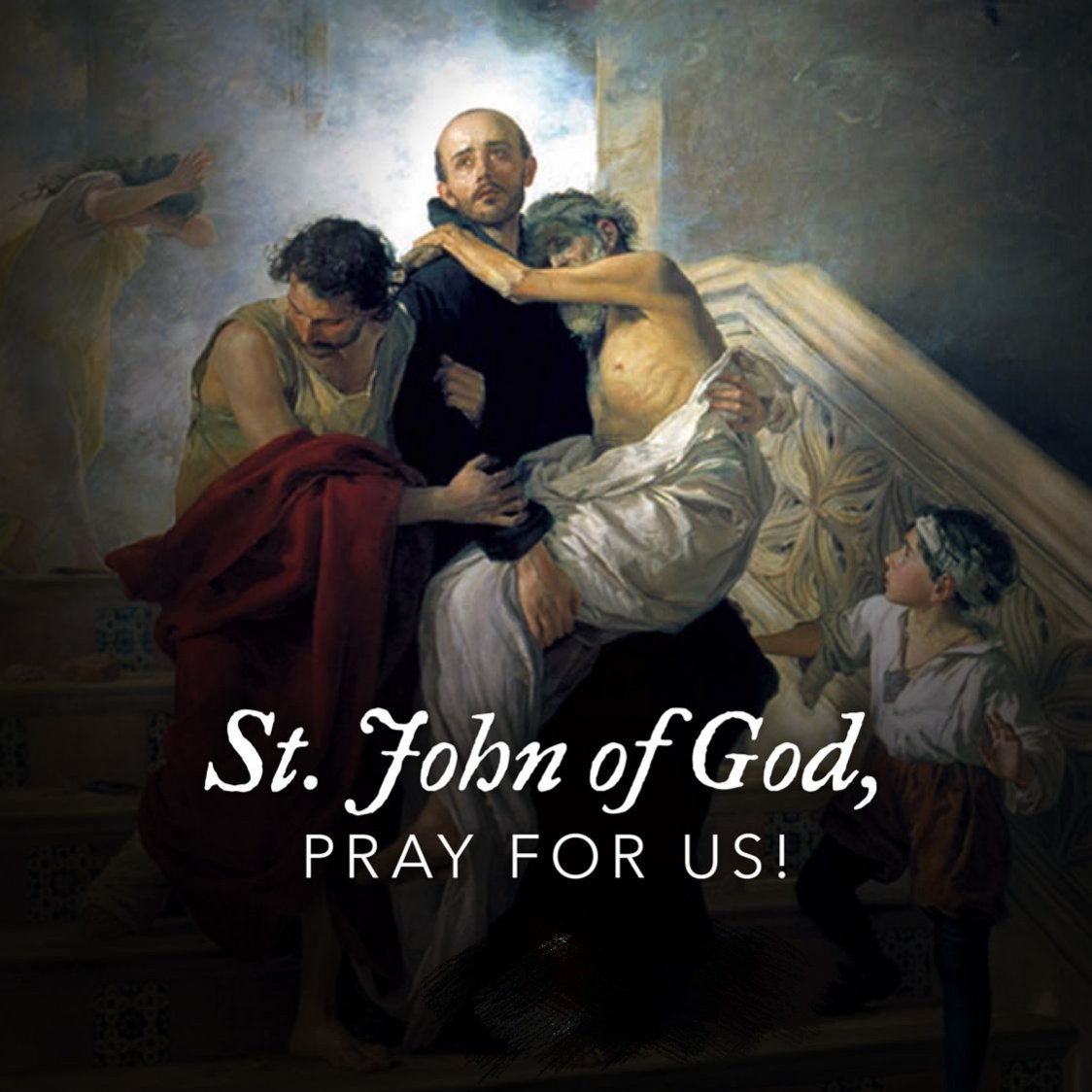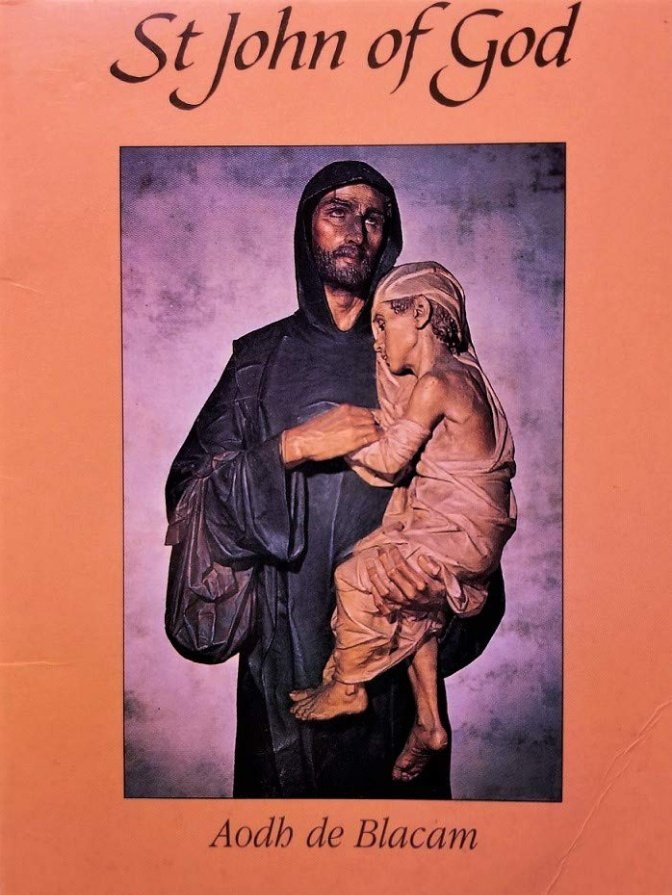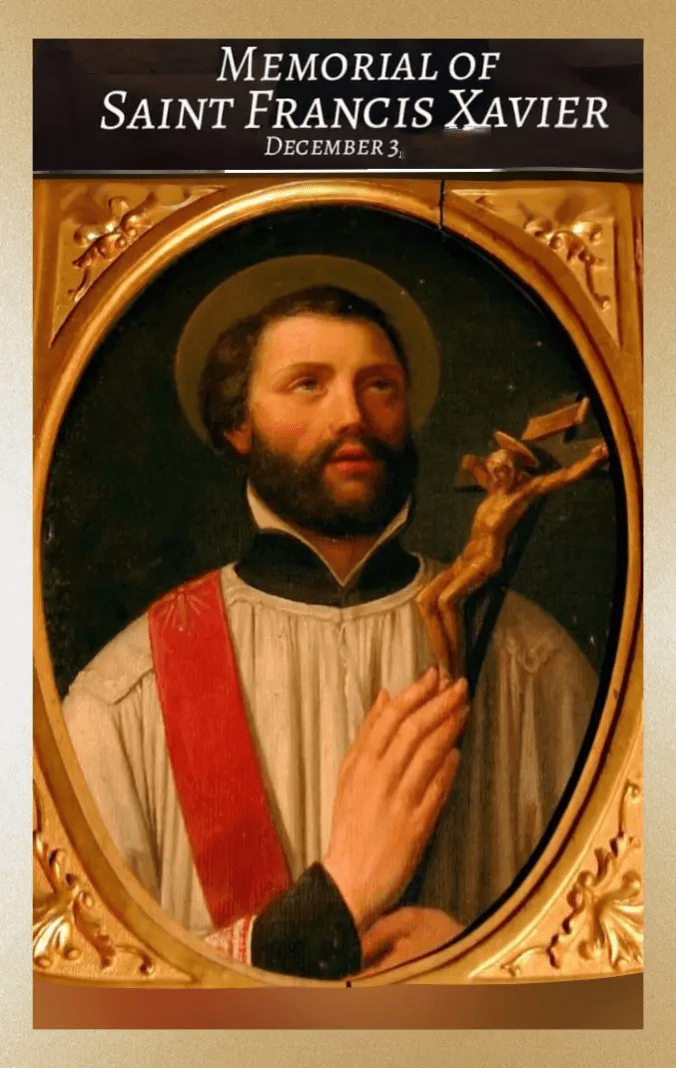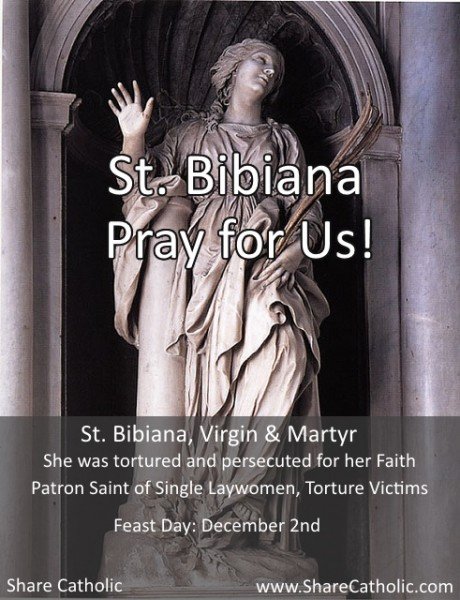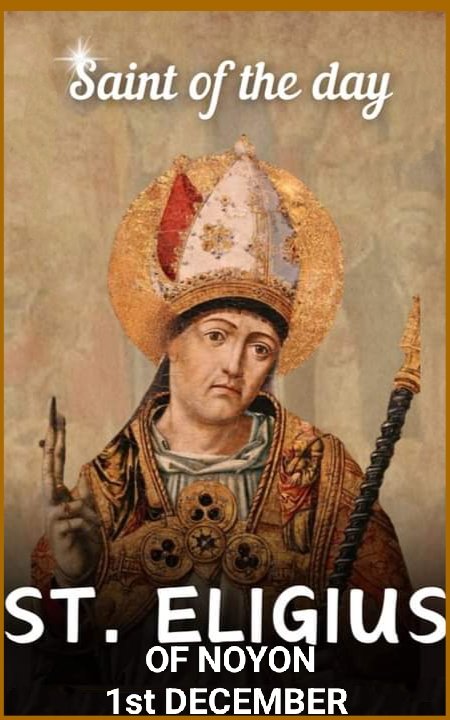
Day Twenty of Lent – The Innocence of the Lamb of God
March 7, 2024
Joshua 1:9
March 8, 2024FEAST OF SAINT JOHN OF GOD CONFESSOR
FEAST DAY – 8th MARCH
John of God (March 8, 1495 – March 8, 1550) was a Portuguese soldier turned health-care worker in Spain, whose followers later formed the Brothers Hospitallers of Saint John of God, a worldwide Catholic institute dedicated to the care of the poor, sick, and those suffering from mental disorders. He was canonized by the Catholic Church, and is one of the leading religious figures in the Iberian Peninsula. He was the son of André Cidade and Teresa Duarte, a once-prominent family that though impoverished, had great religious faith.
One day, when John was eight years of age, he disappeared. According to his original biography, his mother died from grief soon after this and his father joined the Franciscan Order. The young Cidade soon found himself a homeless orphan in the streets of Oropesa, near Toledo, Spain. He had no one to care for him, nothing on which to live and he had to be content with whatever food he could find. He was eventually taken in by a man called Francisco Mayoral, settling down as a shepherd caring for his sheep in the countryside.
The farmer was so pleased with Cidade’s strength and diligence that he wanted him to marry his daughter and to become his heir. When he was about 22 years of age, to escape his master’s well-meant, but persistent, offer of his daughter’s hand in marriage, he joined a company of foot-soldiers, and in that company fought for Charles V, Holy Roman Emperor, eventually dispatched by the Count of Oropesa, Fernando Álvarez de Toledo y Zúñiga, against French forces at Fontarabia.
While serving there, he was appointed to guard an enormous amount of loot, much of which had been rifled by the time he was relieved. Suspicion naturally fell on Cidade; at the least he was guilty of dereliction of duty and was condemned to death, had not some more tolerant officer intervened to win his pardon. Disillusioned by this turn of events after what he felt was faithful military service, Cidade returned to the farm in Oropesa.
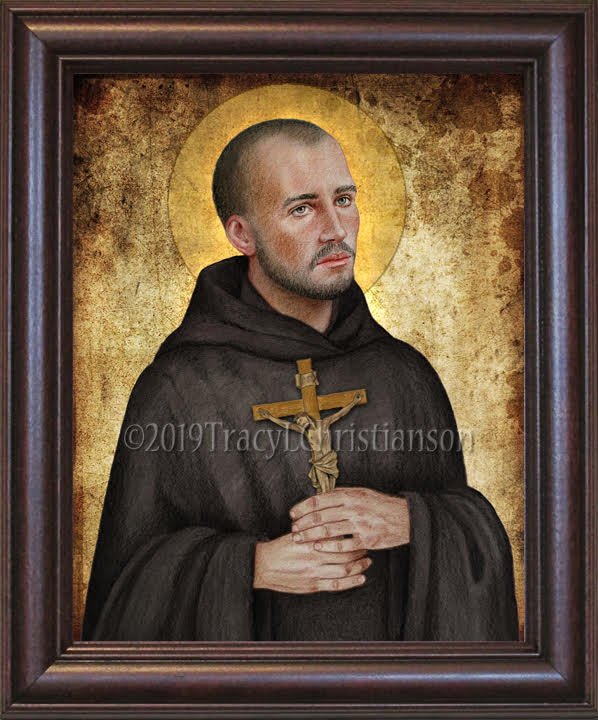
He spent four years again following a pastoral life. This went on until the day that the Count and his troops marched by, on their way to fight in Hungary against the Turks. Still unmarried, he immediately decided to enlist with them, and left Oropesa for a final time. For the next 18 years he served as a trooper in various parts of Europe.
When the Count and his troops had helped in the rout of the Turks, they set sail to return to Spain, landing in A Coruña in Galicia. Cidade decided to return to his hometown, to see what he could learn of the family he had lost so many years before. By that time, he had forgotten his parents’ names but retained enough information from his childhood that he was able to track down an uncle he had still living in the town, and realizing that he no longer had real ties to the region, returned to Spain.
Cidade arrived near Seville, where he soon found work herding sheep, which was familiar to him. With the time now available to him to ponder his life, he began to realize that this occupation no longer satisfied him and he felt a desire to see Africa, and possibly give his life as a martyr through working to free Christians enslaved there. He set out for the Portuguese territory of Ceuta. On the way, he befriended a Portuguese knight also traveling there with his wife and daughters, who was being exiled by the King of Portugal for some crime.
When they arrived in the colony, the knight found that the few possessions the family had been able to take with them had been stolen, leaving them penniless. Additionally the entire family had become ill. With no other recourse, the knight appealed to Cidade for his help. He promised to care for the family, and began to nurse them, finding work to provide them with food, despite the poor treatment the poor citizens received at the hands of the colony’s rulers.
The desertion of one of Cidade’s coworkers to a nearby Muslim city in order to escape this treatment, which meant his conversion to that faith, led to a growing feeling of despair in him. Feeling spiritually lost from his failure to practice his faith during his years of military service, he went to the Franciscan friary in the colony. There he was advised that his desire to be in Africa was not working to his spiritual growth and that he should return to Spain. He decided to do this.
It was during this period of his life that Cidade is said to have had a vision of the Infant Jesus, who bestowed on him the name by which he was later known, John of God, also directing him to go to Granada. Cidade then settled in that city, where he worked disseminating books, using the recent moveable type printing press of Johannes Gutenberg to provide people with works of chivalry and devotional literature.
After hearing a sermon from the famous John of Avila on repentance, he was so overcome by the thought of his sins that the whole town thought the little bookseller had gone from simple eccentricity to madness. After the sermon he rushed back to his shop, tore up any secular books he had, gave away all his religious books and all his money. Clothes torn and weeping, he was the target of insults, jokes, stones and mud from the townspeople and their children.
Friends took John to the Royal Hospital where he was interned with the lunatics. John suffered the standard treatment of the time — being tied down and daily whipping. John of Avila came to visit him there and told him his penance had gone on long enough — forty days, the same amount as the Lord’s suffering the desert — and had John moved to a better part of the hospital.
John of God could never see suffering and although still a patient, he began to help the other sick people around him. The hospital was glad to have his unpaid nursing help and were not happy to release him when he announced he was going to start his own hospital. John may have been positive that God wanted him to start a hospital for the poor who got bad treatment, if any, from the other hospitals, but everyone else still thought of him a lunatic. By selling wood in the square, he bought food and comfort to the poor living in abandoned buildings and under bridges. Thus his first hospital was the streets of Granada.
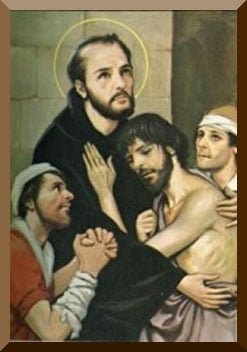
He rented a house in order to move his nursing indoors, and after he begged for money for beds, he carried his patients back on the same shoulders that had carried stones, wood, and books. Once there he cleaned them, dressed their wounds, and mended their clothes at night while he prayed. He used his old experience as a peddler to beg alms. Instead of selling goods, he took scraps of food, clothing, a coin here and there.
When he was able to move his hospital to an old Carmelite monastery, he opened a homeless shelter in the monastery hall. Critics tried to close him down, maligning him, but his urge to act immediately when he saw need got him into trouble more than a few times. Yet his impulsive wish to help saved many people in an emergency. The alarm went out that the Royal Hospital was on fire. When he dropped everything to run there, he found that the crowd was just standing around watching the hospital — and its patients go up in flames.
He rushed into the blazing building and carried or led the patients out. When all the patients were rescued, he started throwing blankets, sheets, and mattresses out the windows. At that point a cannon was brought to destroy the burning part of the building in order to save the rest. John stopped them, ran up the roof, and separated the burning portion with an axe. He succeeded but fell through the burning roof. All thought they had lost their hero until John of God appeared miraculously out of smoke.
John was ill himself when he heard that a flood was bringing precious driftwood near the town. He jumped out of bed to gather the wood from the raging river. Then when one of his companions fell into the river, John without thought for his illness or safety jumped in after him. He failed to save the boy and caught pneumonia. He died on March 8, his fifty-fifth birthday, of the same impulsive love that had guided his whole life. He is patron of booksellers, printers, heart patients, hospitals, nurses, the sick, and firefighters and is considered the founder of the Brothers Hospitallers.
PRAYER
Saint John of God, help us to show love to our suffering fellowmen, the way you showed it, as we feel the promptings of the Holy Spirit. Help us learn to fight the little voices in our heads and hearts that give us all sorts of practical reasons to wait or delay in our service of God.
May we help in the uplifting of the poor and weak and may we give solace to the suffering, in Jesus’ Name. Amen
